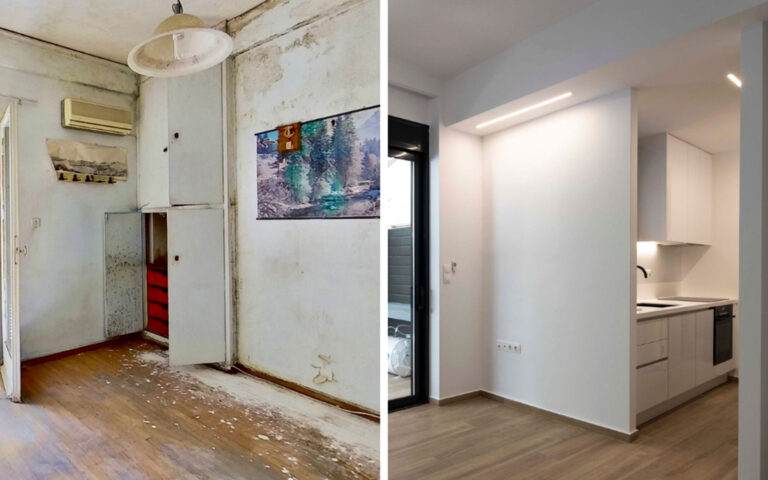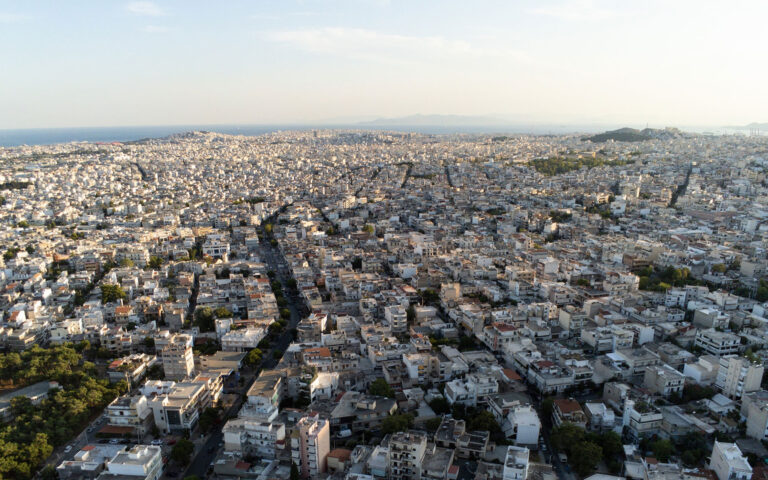A total of 212,000 residences estimated to be absent from the Greek real estate marketbased on a study by Piraeus Bank, which states that this is also the reason why today prices are 14% overvalued compared to the level at which they should be, according to the fundamental macroeconomic figures of Greek economy. In fact, according to the relevant analysis, the main reason for the reduced supply is the fact that 170,000 properties have been absorbed into the short-term rental activity.
Although, however, no immediate increase in the supply of real estate is foreseen, in order to satisfy the excess demand, the analysts of Bank of Piraeus they believe that the cycle of double-digit house price growth is now over and that prices will continue to rise in the near future, but it will now be at single-digit rates.
The fall of the building
According to the analysis of Mr. Ilias Lekkou, Head of Financial Analysis and Investment Strategy of Piraeus Bank, one of the parameters that explain the drop in supply is the collapse of private construction activity during economic crisis. Between 2001 and 2011, it is estimated that the housing stock nationwide increased by 917,000. In 2005 alone, when construction reached its peak, 195,000 new homes were delivered (out of 66,000 building permits). In contrast, in the decade that followed (2012-2022), the new homes added to the stock did not exceed 155,000! That is, they were fewer than in a single year (2005), even though that was the best ever.
The sale prices of the properties are 14% overpriced based on the fundamental macroeconomic parameters of the Greek economy.
In the same period, in terms of demand, 582,000 new households were created in 2001-2011, while in the following decade, the corresponding number decreased to 197,000. At the same time, however, 170,000 properties were absorbed through its activity short term rental, with the result that the total demand reaches 367,000 properties. This is how the deficit of 212,000 homes calculated by Piraeus Bank is formed and which also explains the very high sales prices. Therefore, if short-term renting had not developed to the extent it did, the supply-demand balance in the housing market would be clearly better than it is today.

Decrease in transactions
However, as analysts explain, the first signs of market “fatigue” are now appearing, as high prices seem to have started to cause a decrease in transactions. According to the analysis, “the recent rally in home sale prices poses risks of irrational optimism on the part of construction companies. Their expectations for the path of prices in the next period continue to rise, at the same time that the rate of price increase, in practice, has begun to slow down.” At the same time, as the study states, “based on 2022 data, higher prices led to a slowdown in sales growth (compared to 2021). This is the first sign that the housing market is about to enter the next stage of the business cycle, where further price increases lead to a decrease in the number of sales.”

In terms of supply, new constructions have indeed increased, but not to the required extent. In 2022, approximately 25,000 building permits were issued. However, only 9,793 involved new construction, while a further 6,286 were revisions to existing permits. All other permits were for modifications to the existing building stock. At the same time, out of approximately 16,000 permits that could increase the residential stock, 2,900 concern commercial properties (eg offices, shops, etc.). Thus, the final number is approximately 13,000 permits. These could contribute around 29,000 newly built apartments and houses during this year.
Piraeus Bank considers that potential buyers are still willing to accept the ever-increasing demands of sellers, but with obvious signs of “fatigue”. This means that, now, higher prices will be accompanied by a drop in transactions in the housing market. Whether this will also be reflected in the newly built apartments, is something that will be seen in the next period.
The new buildings are on the rise
Already, however, the acquisition of a newly built property, especially in the Attica basin, is a particularly expensive affair for the vast majority of Greeks. The average selling price, depending on the area, starts from 3,500 euros/sq.m. and in many cases it exceeds 5,000-6,000 euros/sq.m. In fact, most new constructions are located in the most expensive areas, especially in the southern and northern suburbs, where the average selling price exceeds 5,000 euros/sq.m. .




